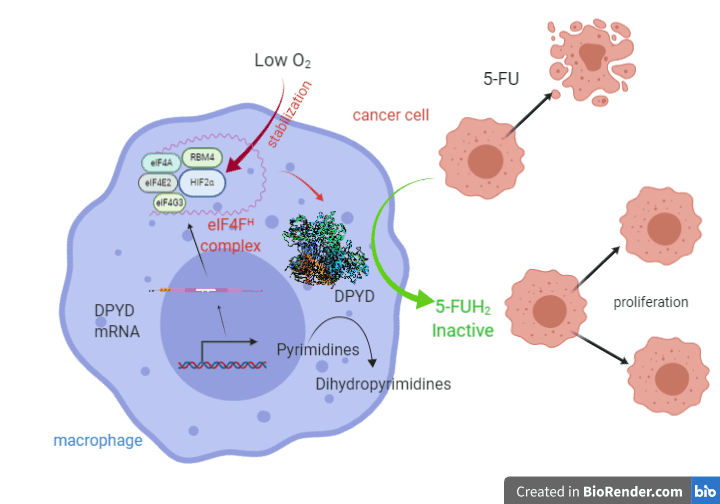Team
Mechanobiology, Immunity and Cancer
Dpt: Microenvironment, cell plasticity and signalling
Our research activities

Arnaud MILLET
Team leader
06 66 88 34 82
Our research axes
In this axis, we develop the molecular exploration of the metabolic processes involved in the response of macrophages toward modifications of their cellular environment by biochemical and physicochemical signals. We notably explore the importance of the control of the pyrimidine metabolism pathway in the global metabolic adaptation of human macrophages to hypoxia.
Benefiting from our discovery that hypoxic macrophages are deeply involved in the resistance to pyrimidine analogues based chemotherapy, we study the implication of macrophages trough their metabolic activity to treatment resistance in various solid cancers. We notably study from a quantitative point of view the link between spatial organization of macrophages in tissues and their involvement in treatment resistance.
In this part of the project, we develop innovative strategies to target specifically the metabolism of macrophages to obtain a therapeutic response. These developments are focused mainly on the targeting of macrophage-driven chemoresistance but also non-cancerous chronic inflammatory conditions. Our strategies are designed to specifically target tissue macrophages as well as circulating human monocytes.
Our research program is based on fundamental questions using approaches from cell biology, immunology and experimental medicine. All the past, current and future research programs developed in the team are designed to generate new scientific knowledge and to offer opportunities to propose relevant medical strategies. In order to fulfil these goals, we develop translational approaches to validate our ideas in in vivo humanized models in mice and in clinical settings with a particular interest in digestive cancers.
Our major publications
See all publicationsOur activities in pictures
Our collaborations
- Fabienne Thomas (IUCT, Toulouse, France)
- Cédric Chauvierre (LVTS Inserm, Paris, France)
- Felix Rico (LAI Inserm, Marseille, France)
- Giovanni Cappelo (Liphy CNRS UGA, Grenoble, France)
- Philippe Frachet (IBS CEA UGA, Grenoble, France)
- Aurélie Bouchet-Spinelli (INAC CNRS-UGA-CEA, Grenoble, France)
- Carlos Rossa Jr (Sao Paulo, Brazil)
- Malgorzata Lekka (IFJPAN, Krakow, Poland)
Our technologies
- Primary cell culture
- Hypoxic culture
- 3D cell culture
- Transcriptomics, proteomics, metabolomics
- Humanized in vivo models
- RT-qPCR, Immunoblot, Flow cytometry, immunofluorescence, Immunohistology
- Atomic Force Microscopy (AFM)









